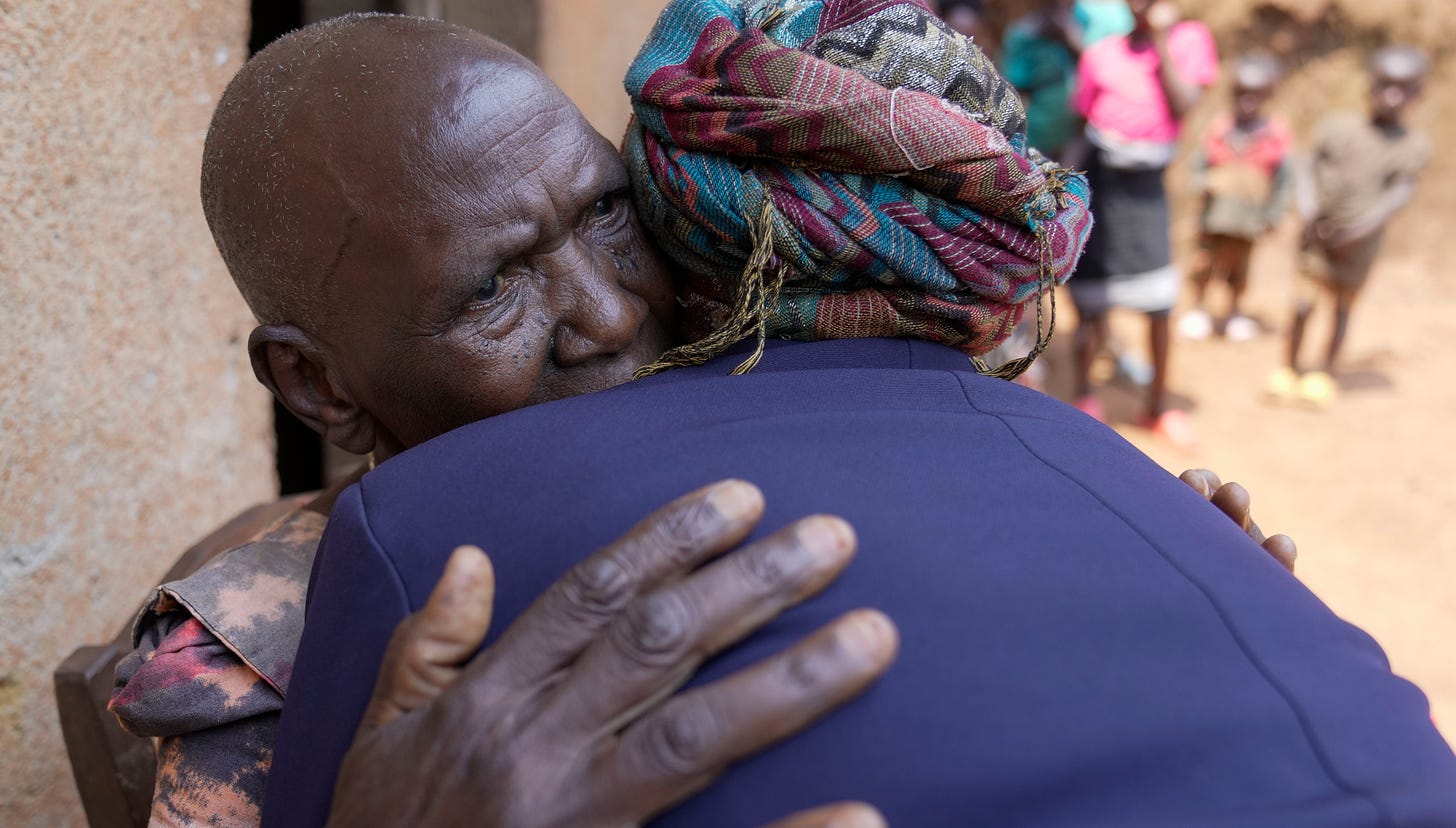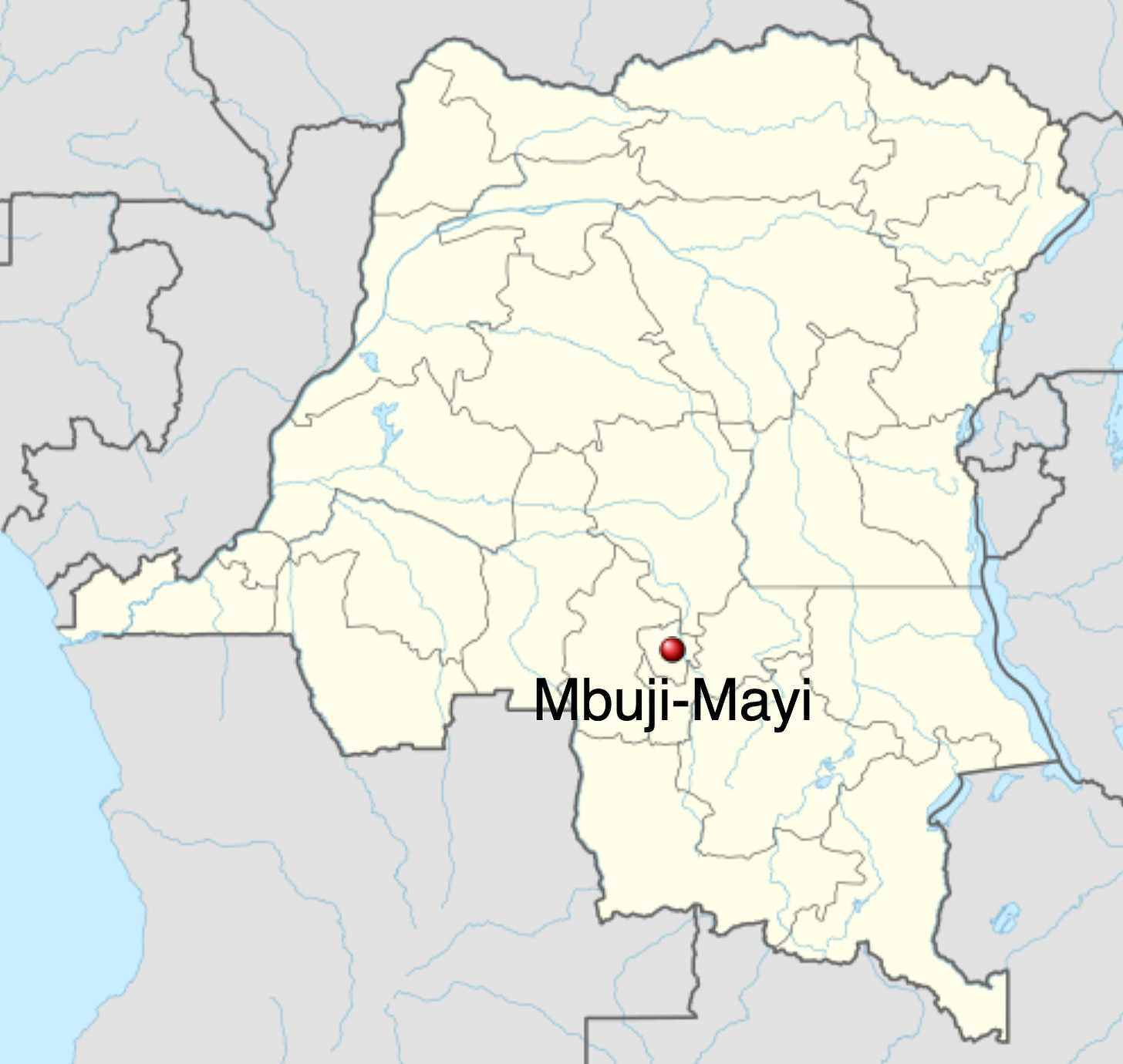🔅 The World's Most Musical "How Are You?" is at Risk of Disappearing
Nigeria Refused to Play a Match and Was Awarded a 3-0 Win
Image of the Day
Good Morning from Conakry, Guinea

Last Week in Numbers
Year-to-Date Performance:
🟢 Johannesburg SE: 87,015.81 (+13.16%)
🟢 Nigerian SE: 99,448.91 (+33.00%)
🟢 Nairobi SE: 115.49 (+25.38%)
🟢 Ghana SE: 4,369.03 (+39.58%)
🟢 US S&P 500: 5,808.12 (+22.46%)
🟢 Shanghai Composite: 3,299.70 (+11.39%)
🇳🇬 Nigeria just put the brakes on Shell's $2.4 billion sale of its onshore and shallow-water oil assets, while giving the green light to a similar deal by Exxon Mobil. Looks like Shell's deal hit a regulatory roadblock, while Exxon managed to navigate the approval maze. The upstream oil regulator giveth and the regulator taketh away.
🇪🇹 The IMF gave a thumbs up to the first review of Ethiopia's $3.4 billion lending program, paving the way for a cool $340.7 million disbursement. Floating the birr currency and getting debt restructuring back on track was the secret sauce to unlocking those IMF funds.
🇸🇳 🇦🇴 🇨🇮 Senegal got a gold star from the Financial Action Task Force (FATF) for making significant progress in combating money laundering and terrorism financing. The watchdog removed Senegal from its grey list, while adding Angola and Ivory Coast.
🇰🇪 Kenya's high court hit pause on a $736 million deal between a state utility and India's Adani Energy to build power infrastructure. The Law Society of Kenya cried foul, calling the deal a "constitutional sham" and "tainted with secrecy." Meanwhile, Kenya's shilling is still shining despite political drama, thanks to a rebounding economy and healthy capital inflows.
🌍 Elon Musk's Starlink internet terminals are selling like hotcakes in Africa. They're sold out in Harare, Zimbabwe, and five Nigerian cities. Local ISPs are slashing prices to keep customers from defecting to the new kid on the block.
🇿🇦 South Africa's inflation rate dipped below 4% for the first time in over three years, bolstering the case for more rate cuts. The central bank governor hinted that the 3-6% inflation target is due for a downward adjustment. Cheaper money, here we come?
🌍 Africa's financial markets are expanding at the fastest pace in seven years, according to Absa's latest index. 23 out of 29 countries improved their scores. Rebounding economic growth and slowing inflation are giving the continent a boost.
🇿🇦 🇪🇹 🇪🇬 🌍 As BRICS expands to nine members (including South Africa, Ethiopia, and Egypt), India's PM Modi cautioned against positioning the group as an alternative to global organizations. Meanwhile, Russia pushed for a unified BRICS financial system sans Western involvement. Geopolitical chess, anyone?
🇺🇬 Partners in the $5 billion East African Crude Oil Pipeline are pumping in more cash to keep the project afloat as Western banks back out. Uganda's energy minister is on a funding quest, restructuring the financing mix to rely more on equity.
🇿🇼 Zimbabwe's consumer inflation skyrocketed to 37.2% month-on-month in October after a sharp currency devaluation. The local gold-backed currency took a 40% nosedive in late September. Hang on tight, it's going to be a bumpy ride!
*Data accurate as of the close of markets across the continent
Spotlight Stories
The World's Most Musical "How Are You?" is at Risk of Disappearing
While most of us settle for a quick "hey" on WhatsApp or a wave emoji, women in Burundi have perfected the art of greeting into a minutes-long musical performance that puts your group chat check-ins to shame.
Try picture an 85-year-old woman breaking into a melodic greeting that, along the way, manages to ask questions like: How are you? How is your husband? How are the kids? How are your cows? Are you on good terms with your neighbors?
All of this delivered while maintaining a warm embrace.
Welcome to akazehe: Burundi's traditional women's greeting that's part hug, part musical performance, and part status update.
But this beautiful tradition is fading fast. The culprits? Modern life, COVID-era social distancing, and the fact that young Burundians are about as likely to know akazehe as Gen Z is to know how to use a rotary phone.
Akazehe isn’t just a greeting – it is a sophisticated social support system. According to anthropologist Isaac Nikobiba, women used these musical check-ins to subtly signal when things weren't great at home, triggering community support.
But for younger generations experiencing akazehe for the first time, it can be... intense. As teacher Annonciate Baragahorana recalls of her childhood encounters: "I wanted her to finish quickly, even if it was sweet words to hear." (Let's be honest – we've all felt that way about some aunty hugs.)
In a world where most greetings happen through screens, akazehe's future does not look secure. But maybe, in a world of increasing digital distance, we could all use a little more of it in our lives.
And in case you want to learn more, AP has a video illustrating the greeting.
Nigeria Awarded 3-0 Win over Libya after It Refused to Play

The Nigeria-Libya football saga has finally reached its dramatic conclusion, and it's a victory for the Super Eagles…
The disciplinary committee of the Confederation of African Football (CAF) has awarded Nigeria a 3-0 win and three precious points from their scheduled Africa Cup of Nations qualifier against Libya earlier this month.
For those who missed the drama, let's recap: the Nigerian team refused to play the match in Benghazi on Oct. 15 after being stuck in a remote Libyan airport for a grueling 16 hours, almost 250km away from their intended destination. The players and officials were reportedly locked in the airport with no access to food or water, and no contact from Libyan officials. Talk about a warm welcome.
Faced with this mistreatment, the Nigerian team decided to fly back home rather than play the game. The Libya Football Federation tried to play the "it wasn't deliberate" card, but CAF wasn't buying it. They found Libya in breach of competition rules that require host associations to properly receive visiting teams, see them through entry formalities, and provide a bus for their transportation. It seems like the Libyans forgot to read the "How to be a Good Host" manual.
As a result, Nigeria has been awarded the match with a 3-0 scoreline, and Libya has been slapped with a $50,000 fine. This puts Nigeria in a comfortable position at the top of Group D, with 10 points and two matches left to play. They're now four points ahead of second-placed Benin and five ahead of Rwanda, while Libya languishes in last place with a single point from four games.
Libya had earlier complained about the treatment of their own players and officials when they played in Nigeria on Oct. 11. Their flight landed hours away from the match venue, and the players endured long travel delays. Nigeria won that match 1-0, and it seems like Libya's treatment of the Nigerian team ahead of the scheduled return game was a classic case of "an eye for an eye."
Turning Savannas into Forests: The Remarkable Story of Dorcas Tshabu
In the Democratic Republic of Congo, one woman is proving that with a little determination and a lot of hard work, you can turn a barren savanna into a thriving forest. Meet Dorcas Tshabu, the eco-warrior who's not just talking the talk but walking the walk (and planting the trees).
Dorcas, the president of the NGO Action for Promotion and Integral Development (APRODI), has transformed 50 hectares of land near Mbuji-Mayi into a lush oasis, complete with acacia trees and a resurgent wildlife population. Snakes, monkeys, jackals, and birds have all moved in, thrilled to find a new green space to call home.
Local management committees are getting communities involved in forest management, ensuring that everyone has a stake in conservation and sustainable efforts.
This is part of an AfDB funded project, and the numbers speak for themselves: 10,886 hectares reforested, 154,344 tonnes of carbon sequestered annually, 21,662 jobs created (including 12,662 for women), and 21,700 households benefiting economically. And let's not forget the 9,000 improved stoves distributed to reduce wood energy consumption.
As Anthony Nyong, Director of the Climate Change department at the bank, puts it: "The [project] demonstrates how agroforestry can not only restore degraded ecosystems but also transform lives."
Food for Thought
“To protect an individual is to protect society”
— Zambian Proverb





